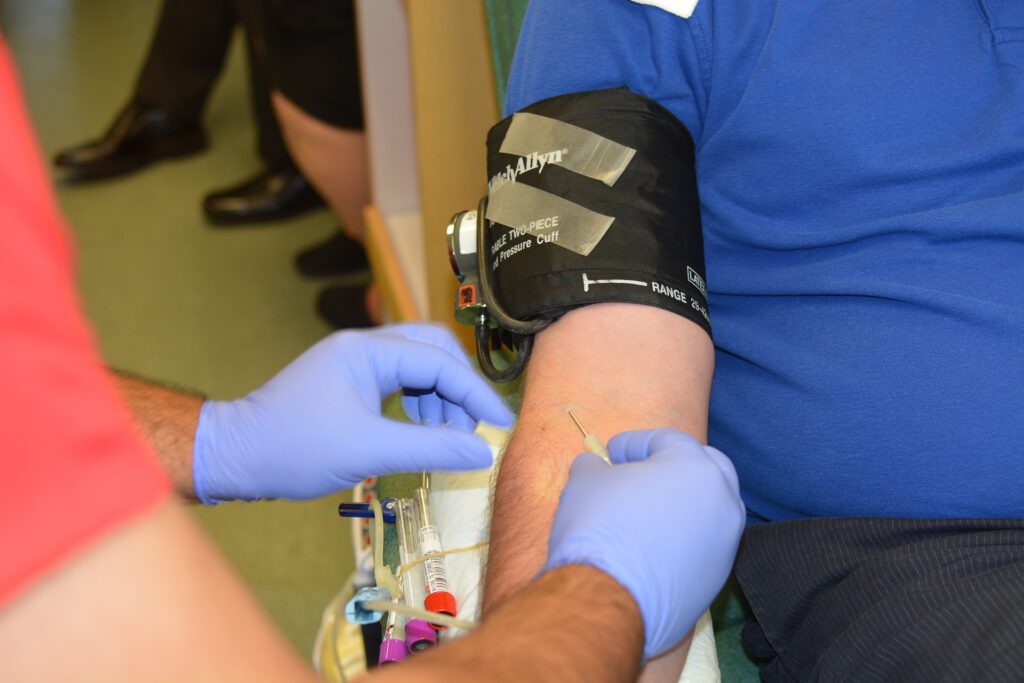Horrific news seems to bookend our days. Last week I awoke to news of the destruction of Notre Dame. On Easter, I set the table for lunch as blasts ripped through buildings in Sri Lanka. I shuddered to think of what might greet me as I lay me down to sleep.
There is a painful sharpness to the irony of the bombings in Sri Lanka occurring on Easter Day. This is the day that Christians believe Jesus Christ rose from the dead. And yet, just in time to mark that miracle, death doesn’t merely knock on certain church and hotel doors in Sri Lanka; he blows those places apart. Bombs tear nearly 300 people limb from limb, and wound 500 more.

This is our Easter? This is our Bonne Pasque?
For Christians, Easter marks the triumph of life over death. But, as we have seen this Easter Day, the reality is that death is all around us still. And if this is so, how do we live in this paradox? Death is supposedly dead and gone, and yet, like the player he is, still struts and frets his hour upon the stage.
As Notre Dame was burning last week, I tried to make some sense of the blaze and the loss resulting from it in the light of the hope of Easter and the triumph of Christ over death by his resurrection. There was horror in Notre Dame, but it was an abstracted one ― an elemental one. There was fire and the fear of it. There was great loss and the mourning of it. There was ignition and there was fuel. Yet there was no murderer and there was no target. There was no blood spilled. We could rage against the fire and its burning, but we could also make some sense of it, for it is the nature of fire so to burn. And then the blaze was put out. And the government promised to rebuild. And money began to flow like water with the promise of rebirth. Even in the chaos of destruction, there was the hope of order and renewal.
In contrast, one of the many horrors of the events in Sri Lanka is the use of order to bring about such chaotic devastation. There would have been the plotting of targets, the patient organisation of materials, and a high degree of coordination to bring about such a horrific loss of life. There was ignition and there was fuel. There were murderers and there were targets. And there was so much blood spilled. It feels as though the triumph of Easter is now defeated, that all the promises of this day are now revoked and death conquers life once more.
And yet what is the response of Sri Lankans to this senseless violence? It is the brave, sensible, necessary, sacrificial spilling of blood for others.
The loss of life in Sri Lanka on this Easter Day is staggering. That so many people were razed to the ground as they celebrated their risen Lord, as they ate breakfast, as they drank tea, as they sang a song, as they opened a newspaper or a Bible, as they wiped the milk from above their child’s mouth ― this is a wretched sadness. That they would die in the middle of doing any number of simple human things is particularly harrowing. This could happen to any one of us. There is always the possibility that, as we go about our daily lives, we could fall victim to someone else’s senseless path of vengeance or retribution. And what is worse is if someone else could be a victim in ours.
The devastation of the churches and the hotels in Sri Lanka seems so senseless and futile. And these senseless, cowardly acts of aggression and terror in Sri Lanka this Easter have resulted in the unnecessary spilling of blood of hundreds of victims. And yet what is the response of Sri Lankans to this senseless violence? It is the brave, sensible, necessary, sacrificial spilling of blood for others.
There are photos of people crowded into blood banks in Colombo, pressing through the doors, streaming into the building, gathering together to give their blood so that others could live. Where the bombs were intended to blow people apart, in their aftermath people have gathered themselves together to save others. People are helping one another to fill in the paperwork, to speed the process of donation, to bring help to those who are suffering as quickly as possible.

This too is Easter. Easter is about the triumph of Christ’s life over death. But it is also about his death, about the spilling of blood to bring about that triumph. His blood was spilled so that others could live. It is a messy, bloody truth.
A few days before Easter I passed by a blood donor bank with a red cross on its sign in bright contrast to all the grey city stone. I was early for work. I walked into the almost empty blood bank to see if I could give blood. I’d tried a few times over the years but was never able to. But last Thursday I was finally allowed, and as I sat in a chair with a needle in my arm and a ribbon of blood winding its way to a sterile pouch, I wondered who would receive my donation. I hoped that my blood would help them. I hoped that it would help them live.
One of the volunteers asked me why I had decided to give blood that day. I said the first thing that came to my lips: “Because of Easter.” At the time, I didn’t know why I said it. This Easter I know why I did.
Dr Laurel Moffatt is a Fellow of the Centre for Public Christianity.
This article first appeared in ABC Religion & Ethics.